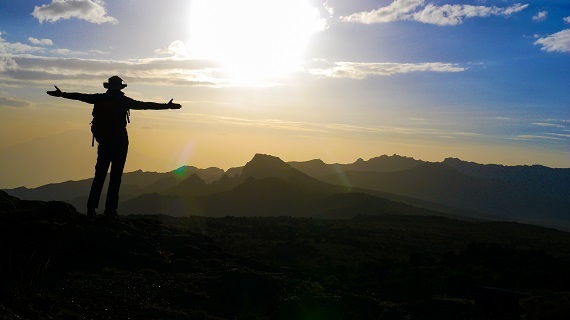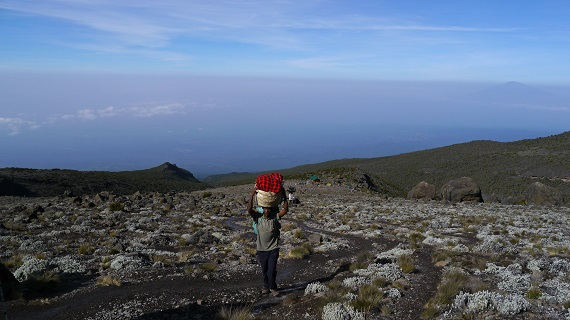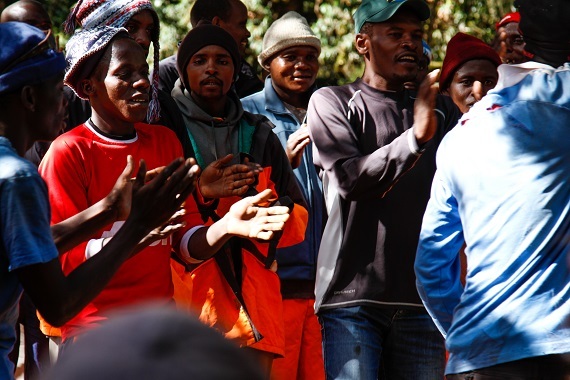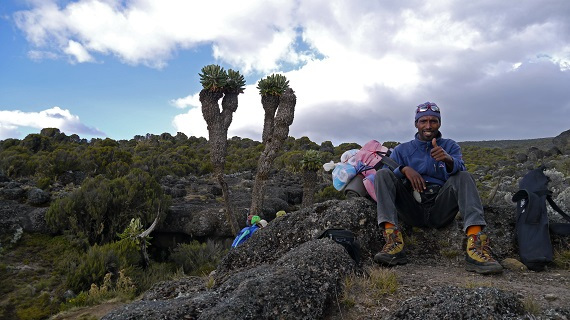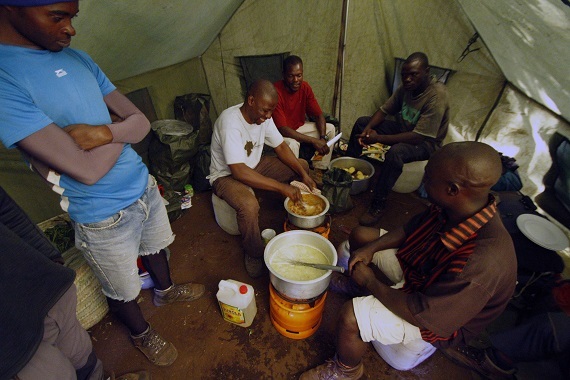It's been a few months already, but I still often find myself reflecting on our (successful) Kilimanjaro climb - wondering what it all meant, what lessons I learnt, how the experience will impact on the rest of my life.
So far, I don't really have any clear answers. Neither on reaching the summit for a perfectly clear dawn, nor at any time since, have I had some incredible moment of revelation or transcendence.
As I stood at Uhuru Peak gasping for air, all I can say for sure is that I was bloody shattered, and I have no doubt that I will remember the view and the sense of accomplishment.
I can't deny that the overall experience that led us to that point had certainly been a memorable one. The whole trip had been organized by Kilimanjaro Experience and they had been professional, friendly, fun and highly efficient from start to finish.
I was part of a small team that had been hired by them to make some promotional films about climbing Kilimanjaro. I was to write the scripts and do all interviews and the subsequent narration, and this too was an exciting new challenge for me.
The mountain itself was no less strange and staggering than I'd imagined it to be ever since I had a poster of it on my wall as a small boy.
But when I reached the summit, I certainly didn't feel that my life was suddenly somehow different.
In fact, what I felt more than anything was something that had been creeping up on me throughout the whole trek: how ridiculous we were.
Most of the Westerners or white folks reading this will have seen pictures of at least one of your friends standing triumphantly on top of Africa's highest mountain, drunk on a cocktail of lack of altitude and a weird sense of colonial nostalgia, posing like a great explorer of old.
And some will have read the ludicrously corny things that people come up with afterwards. Here is one of my favourites, courtesy of Tim Ward for Huffington Post:
"You feel alive like never before and you never want to let this moment go. Life whirls around you and in you and through you, and you only want to rest inside that great vortex . . . Life means more because you made it here. It seems impossible that you did this on your own legs.
"Yet here you stand, limbs shaking. And if you could do this one impossible thing, then whatever else there may be for you in the world below, at that one moment you know that anything is possible for you."
To my mind, what these kind of hyperbolic reports fail to acknowledge is that actually, in hindsight, once you've got to a point where you can be completely honest with yourself, you didn't really do a whole lot. The porters and guides did most of the work.
When we climbed, for our group of just seven tourists there was a team of more than 40 Tanzanians. These guys carry your tents and bedding, heavy pots and cooking utensils, your food, your water, even your backpacks.
They stay behind to pack up your camp in the morning, overtake you along the route despite the fact that they are carrying twice as much weight as you, then set up your camp at the next stop, fetch water from nearby streams or springs, begin to prepare your meals - all before you've even arrived.
For them, all of this is just another day at the office. It's just work.
Some of these guys, such as our head guide Kundaeli, have climbed the mountain literally hundreds of times. Some of them, like Ernest, one of the older porters, have seen people die along the way. For others though, such as our waiter Abdala, it was their first time, just like us. And he certainly didn't get lovingly guided through it all the way we did. He just strapped on those big bags and tried to keep up.
At the end of the climb, once you've finally made it back down again, you'll undoubtedly have a small ceremony where a certificate will be given to you and you'll smile so proudly, as if you've just won an Oscar or discovered Victoria Falls. Then you'll go out for celebratory beers. Meanwhile, your porters and guides will have slipped away quietly for some rare family time before they set off on their next trek.
I sometimes wonder what they must think of the tourists. Whether they think we are incredibly strange for wanting to pay all that money to climb a mountain just to be able to say that, well, we climbed a mountain.
If that is what they think, then I would tend to agree with them.
But whatever our motives, none of it would be possible wihout the help of these Tanzanian porters and guides, just as Livingstone's or Stanley's "discoveries" never would have been possible without their teams of Africans. Sadly, in all of these instances the people who do most of the work are not the ones that are remembered.
But for me, I will never forget the guys who took us to the Roof of Africa. I suppose then that if nothing else, what I have learnt from the whole experience is to see more truth in the old African adage that "I am because of others".
This post was originally published on the author's website: www.cawclark.com
